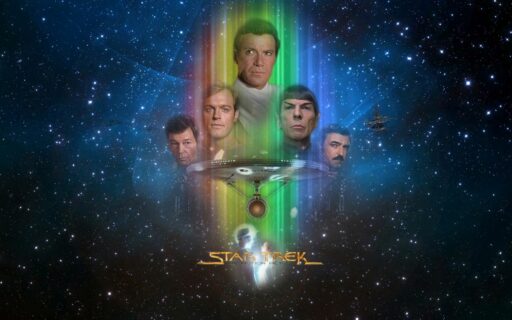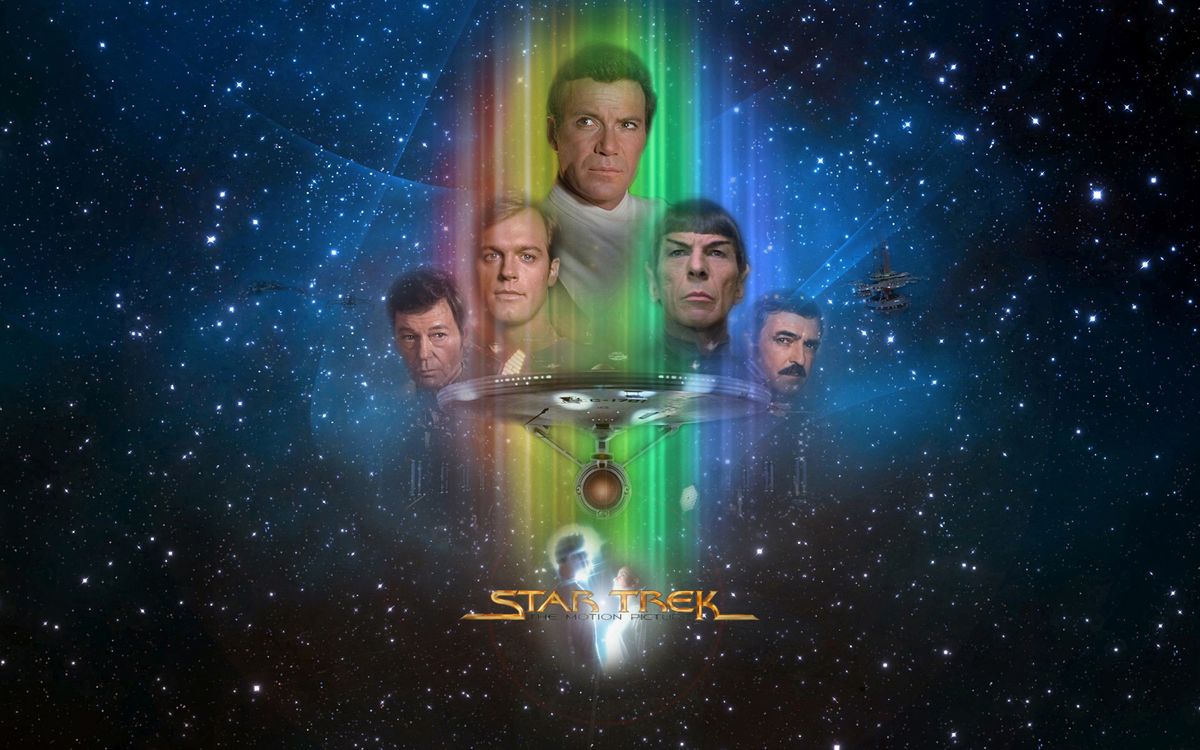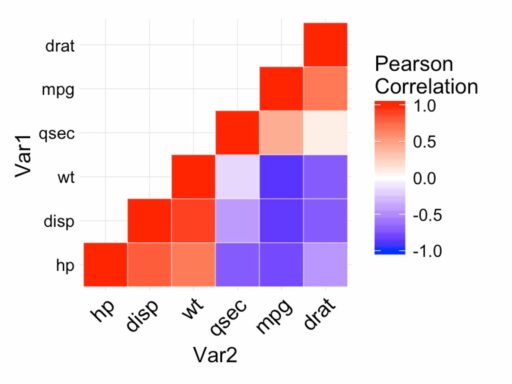Table of Contents
In the vast universe of ‘Star Trek,’ few characters have captured the hearts and imaginations of fans as profoundly as Lieutenant Commander Data. This article delves into the multifaceted existence of Data, from his inception to his enduring legacy, exploring how he evolved from a mere concept into an iconic figure in the sci-fi genre. We examine the nuances of his aesthetics, the cultural impact he has had, the philosophical questions he embodies, and the complex relationships he navigates aboard the USS Enterprise.
Key Takeaways
- Data’s origins were meticulously planned, reflecting the aspirations of ‘Star Trek’ creators to explore themes of artificial intelligence and humanity.
- The evolution of Data’s character was influenced by Brent Spiner’s nuanced performance, which added depth to the android’s quest for humanity.
- Data’s Starfleet uniform and visual design not only signify his rank and role but also serve as a symbol for his integration into human society.
- Beyond entertainment, Data has significantly influenced the perception of AI in popular culture and inspired various crossovers and parodies.
- Through his relationships and personal growth, Data serves as a conduit for exploring philosophical and ethical dilemmas related to life and consciousness.
The Genesis of Data: From Concept to Iconic Character

The Original Vision for Data
The character of Lt. Commander Data, portrayed by Brent Spiner, began as a blank slate, an android with no memory of his origins or the capacity for human emotion. His quest to understand humanity and belong became a central theme throughout ‘Star Trek: The Next Generation’. Data’s backstory was gradually revealed, including his ‘grandpa’ Dr. Ira Graves and his creator, Dr. Noonien Soong, who instilled in him the longing to be human.
- Data’s initial lack of knowledge about his past
- The discovery of his creator and ‘grandpa’
- His twin brother, Lore, representing his darker potential
Data’s evolution is marked by his continuous learning and adaptation, reflecting the human condition in a way that resonated with audiences. His journey from an orphaned android to uncovering his complex origins mirrors our own search for identity and purpose.
Data’s Evolution Across the Series
As Lt. Commander Data journeyed through the cosmos aboard the USS Enterprise, his character underwent a profound transformation. Initially unaware of his origins, Data’s quest for understanding his past and his desire to become more human-like became a central theme of ‘Star Trek: The Next Generation’.
- Data’s discovery of his ‘grandpa’, Dr. Ira Graves, and the teachings about his creator, Dr. Noonien Soong.
- The encounter with his twin brother, Lore, who presented a stark contrast to Data’s benevolence.
- The gradual unveiling of his backstory, including the activation on Omicron Theta and the intricate details of his positronic brain.
Data’s evolution was not just a personal journey, but also a narrative device that allowed the series to explore deeper philosophical questions about life and identity.
The character’s development was marked by significant milestones, each revealing more layers to his complex nature. From the integration of his emotion chip to the resolution of his longing to be human, Data’s growth was a testament to the series’ commitment to continuity and character depth.
The Impact of Brent Spiner’s Performance
Brent Spiner’s portrayal of Lt. Commander Data has left an indelible mark on the ‘Star Trek’ franchise. His ability to imbue the android with a nuanced humanity, while maintaining the character’s mechanical precision, has been widely acclaimed. Spiner’s performance evolved alongside Data, as he explored the complexities of an artificial being striving for human connection.
Beyond the technical aspects of his role, Spiner’s contribution to the ‘Star Trek’ universe extends to his portrayal of the Soong characters. This lineage of roles allowed Spiner to showcase his versatility as an actor, each character bringing a new dimension to the lore of Data’s creation and existence.
- Dr. Noonien Soong: Data’s creator and the original Soong character.
- Arik Soong: An ancestor featured in ‘Star Trek: Enterprise’.
- Altan Inigo Soong: A descendant in ‘Star Trek: Picard’.
Spiner’s performances have not only defined the character of Data but have also shaped the portrayal of artificial intelligence in popular culture. His embodiment of Data’s quest for humanity resonates with audiences, reflecting our own search for identity and belonging.
Uniforms and Androids: The Aesthetics of Data

Data’s Starfleet Uniform and Its Symbolism
Lieutenant Commander Data’s Starfleet uniform is not just a piece of clothing; it is a symbol of his status and his aspirations within the Starfleet hierarchy. The uniform’s design reflects the evolution of Starfleet’s values and the technological advancements of the Federation. The tri-color format, which has been a staple of Starfleet uniforms, signifies different roles within the crew: command officers wear gold, science and medical officers wear blue, and operations, which includes technicians, engineers, and security personnel, wear red.
Data’s gold uniform not only designates his position in the operations division but also visually represents his journey towards becoming more human.
Each iteration of the Star Trek series has brought subtle changes to the uniforms, maintaining a visual continuity while adapting to the times. For instance, the uniforms from Star Trek: The Next Generation included a sophisticated touch with the Starfleet symbol patterned on them, a departure from the simpler designs of the original series.
The significance of Data’s rank and role is further emphasized by the fact that his uniform aligns him with some of the most iconic characters in the franchise, such as Captain Kirk and Commander Spock, who also wore the emblematic colors of their respective divisions.
Visual Design: Data’s Appearance and Features
The visual design of Lieutenant Commander Data is a testament to the meticulous attention to detail that the ‘Star Trek’ production team dedicated to creating an android that was both relatable and otherworldly. Data’s pale gold skin, yellow eyes, and slicked-back hair immediately set him apart from his human counterparts, yet his uniform placed him firmly within the ranks of Starfleet.
- Data’s skin tone was chosen to differentiate him from the crew, yet not to alienate him from the audience.
- His eyes, a striking yellow, were designed to hint at his non-human nature without being overly alien.
- The hair, though similar in style to human crew members, had a distinctly unnatural hue, reinforcing his android identity.
Data’s appearance was a delicate balance between the familiar and the extraordinary, a visual cue to his unique place on the USS Enterprise.
The design elements of Data’s character were not just for show; they served a narrative purpose, symbolizing his quest for humanity while highlighting his synthetic origins. His rank pips and communicator badge were identical to those of his fellow officers, underscoring his official status and acceptance within the Starfleet command structure.
The Significance of Data’s Rank and Role
In the structured hierarchy of Starfleet, Data’s rank as a Lieutenant Commander is not merely a title but a reflection of his capabilities and responsibilities. His role aboard the USS Enterprise is multifaceted, encompassing operations, science, and occasionally command duties. This rank places Data in a unique position where he is both a subordinate to senior officers and a leader to junior crew members.
- Data’s proficiency in multiple disciplines is recognized through his rank.
- His leadership is characterized by a blend of logic and emerging understanding of human nuances.
- Data’s rank allows him to bridge the gap between the human and artificial entities on the ship.
Data’s journey through the ranks of Starfleet is emblematic of his growth as an individual and as an officer. It is a testament to his evolving self-awareness and the increasing trust placed in him by his peers and superiors.
Data’s Cultural Resonance: Beyond the Screen

Data’s Influence on AI Perception in Popular Culture
Lieutenant Commander Data, with his quest to become more human, has significantly shaped the public’s understanding of artificial intelligence. His portrayal has made the concept of AI more relatable and less intimidating to the general audience. Data’s character has been instrumental in presenting AI as a potential ally rather than a threat, a narrative that deviates from the typical rogue AI trope prevalent in science fiction.
- Data’s non-hostile nature challenges the often feared image of AI.
- His interactions with the crew highlight the potential for AI to understand and express human emotions.
- The character’s evolution showcases the possibility of AI learning and growing over time.
Data’s influence extends beyond entertainment, subtly altering the discourse around AI and its role in society. His character serves as a bridge between complex technological concepts and the layperson, making the discussion of AI more accessible to a wider audience.
Crossovers and Parodies: Data in Other Media
The character of Data has transcended the boundaries of the Star Trek universe, finding his way into various forms of media, often as a subject of parody or homage. The cultural impact of Data is evident in his appearances across different platforms, from television to film, and even animation.
- "The Last Voyage of the Starship Enterprise", a 1976 SNL sketch, is an early example of Star Trek parody that paved the way for Data’s character to be featured in comedic contexts.
- Galaxy Quest (1999) and the Black Mirror episode "USS Callister" (2017) are notable films and television episodes that have drawn inspiration from the Star Trek franchise, indirectly celebrating the archetypes embodied by characters like Data.
- Animation has also embraced Data, with shows like Futurama in its "Where No Fan Has Gone Before" episode, and The Orville, a series that captures the spirit of Star Trek while introducing characters reminiscent of Data.
Data’s influence extends beyond mere entertainment; it challenges and inspires discussions on artificial intelligence and humanity in popular culture.
The exploration of Data’s character in other media not only reflects his popularity but also the enduring relevance of the themes Star Trek tackles, such as the quest for understanding different types of data and the power of metadata in shaping narratives.
The Fandom and Legacy of Data
The character of Data has transcended the boundaries of the screen to become a beloved icon within the Star Trek fandom. His influence is evident in the myriad of ways fans celebrate and reinterpret the character, from fan productions to academic discussions. Data’s legacy is not just preserved in the memories of fans but also in the creative works that he has inspired.
- Fan productions and conventions often feature Data-centric stories and cosplays.
- Academic circles analyze Data’s impact on the perception of AI and humanity.
- Parodies and homages in other media, such as Futurama and The Orville, pay tribute to Data’s character.
The enduring appeal of Data lies in his quest for humanity, a narrative that resonates deeply with audiences who see in him the eternal struggle to understand what it means to be human.
The table below highlights some notable instances where Data’s influence has been felt in other media:
| Year | Media | Reference to Data |
|---|---|---|
| 1999 | Film | Galaxy Quest |
| 2002 | TV | Futurama episode "Where No Fan Has Gone Before" |
| 2017 | TV | The Orville |
Data’s character continues to be a touchstone for discussions about artificial intelligence, ethics, and the human condition, ensuring his place in the pantheon of science fiction legends.
Philosophical and Ethical Explorations Through Data

The Quest for Humanity: Data’s Personal Journey
Throughout Star Trek: The Next Generation, Lt. Commander Data’s quest for humanity is a central theme that resonates deeply with audiences. His journey is marked by a series of pivotal moments and revelations that shape his understanding of what it means to be human. Data’s exploration of human emotions, ethics, and personal identity is not only a narrative device but also a mirror reflecting our own human condition.
- Data’s initial lack of knowledge about his origins and his desire to learn more.
- The influence of figures like Dr. Ira Graves, who claimed to be Data’s ‘grandpa’, on his understanding of humanity.
- Encounters with his creator, Dr. Noonien Soong, and his twin brother, Lore, which further complicate his quest.
Data’s journey is not just about the pursuit of emotion or the accumulation of human experiences; it is about the profound realization that to be human is to be part of a larger community, to connect, and to belong.
Data’s personal journey is also marked by the ethical dilemmas he faces, often challenging Starfleet protocols and his own programming. These challenges are not just obstacles but opportunities for growth, allowing Data to evolve in ways that blur the lines between man and machine.
Ethical Dilemmas and Starfleet Protocols
The ethical quandaries faced by Data often revolve around the interpretation and application of Starfleet protocols, such as the Prime Directive. This guiding principle, which prohibits interference with the natural development of alien civilizations, has been a source of moral tension for Data, who must balance his programmed directives with the complexities of real-world scenarios.
- The Kobayashi Maru simulation is a notable example where ethical decision-making is tested. Cadets, including iconic characters like Kirk, are placed in a no-win scenario to evaluate their responses to impossible situations.
Data’s unique perspective as an android often leads to unconventional approaches to these dilemmas, challenging the norms of Starfleet and pushing the boundaries of what is considered ethical behavior.
In the context of his service aboard the USS Enterprise, Data’s actions have sometimes contradicted standard protocol, leading to debates about the flexibility and interpretation of Starfleet regulations in unprecedented situations.
Data and the Definition of Life
The character of Lt. Commander Data has been pivotal in Star Trek: The Next Generation for challenging the audience’s understanding of what constitutes life. An android with a positronic brain, Data’s journey is marked by his quest to understand and attain humanity. His interactions with characters like his ‘grandpa’, Dr. Ira Graves, and his creator, Dr. Noonien Soong, further complicate the definition of life, blurring the lines between biological and artificial existence.
Data’s existence raises questions about consciousness, identity, and what it means to be alive. His experiences, from learning about his past to grappling with human emotions, reflect the complexities of defining life beyond organic parameters.
Data’s exploration of life is not just a personal journey but also a legal and ethical debate within the Star Trek universe. Here are some key points:
- Data’s legal status as a sentient being was challenged and defended in the landmark trial depicted in the episode "The Measure of a Man".
- The discovery of Data’s brother, Lore, introduces the concept of divergent android morality.
- Data’s service on the USS Enterprise challenges preconceived notions of what roles an android can fulfill in society.
Data’s Relationships: Friendships, Romances, and Rivalries

The Crew of the USS Enterprise: Data’s Found Family
Throughout his service on the USS Enterprise, Data formed deep connections with his fellow crew members, who became akin to a family for the android. His interactions with the crew were pivotal in his ongoing quest to understand humanity and to find his place within it.
- Captain Jean-Luc Picard served as a mentor and father figure, guiding Data through the complexities of human emotions and ethics.
- Commander William Riker was a supportive first officer and friend, often engaging Data in human social activities.
- Dr. Beverly Crusher taught Data about human biology and healthcare, providing a unique perspective on the fragility of life.
- Lieutenant Worf’s stoic demeanor and strong sense of honor resonated with Data’s own quest for identity.
- Counselor Deanna Troi helped Data explore the intricacies of human emotions and relationships.
- Geordi La Forge was perhaps Data’s closest friend, sharing a bond of trust and mutual respect.
Data’s journey was not just about the pursuit of humanity; it was about the relationships that define us as human beings.
Data’s interactions with the crew were not without challenges, but they ultimately underscored the android’s evolving understanding of what it means to be part of a community. His unique perspective often provided the crew with invaluable insights, further cementing his role as an integral member of the Enterprise family.
Exploring Emotion: Data’s Romantic Endeavors
Lieutenant Commander Data’s quest to understand and experience human emotion led him to explore the complexities of romantic relationships. His endeavors in love provided a unique perspective on what it means to be human, highlighting the intricacies of affection and attachment.
- Data’s first significant romantic encounter was with Tasha Yar, which was as unexpected as it was brief, revealing the spontaneity of human desire.
- His relationship with Jenna D’Sora in the episode ‘In Theory’ allowed Data to engage in a simulation of a romantic partnership, complete with the challenges and emotional nuances involved.
Data’s exploration of romance was not just about understanding emotion, but also about the desire to connect and belong.
While Data’s attempts at romance were often met with challenges, they served as poignant narratives that enriched his character development and resonated with audiences. His experiences remind us that the pursuit of love and understanding is a universal journey, one that even an android could aspire to.
Antagonists and Allies: Data’s Complex Interactions
Throughout the Star Trek series, Lieutenant Commander Data’s interactions with various characters have been pivotal in shaping his journey and the narratives around him. His relationships with antagonists and allies alike have provided a rich tapestry for exploring the nature of sentience and morality.
- Antagonists: Data’s most notable adversary is his own ‘brother,’ Lore, who embodies the darker possibilities of artificial life. Their dynamic delves into themes of jealousy, ambition, and the quest for power.
- Allies: On the other hand, Data’s creator, Dr. Noonien Soong, represents the paternal figure in his life, offering insights into his origins and potential.
Data’s quest for humanity is often mirrored in his interactions with others, reflecting the complexities of his artificial existence against the backdrop of human emotion and conflict.
The table below summarizes some of Data’s key relationships in the series:
| Character | Relationship | Impact on Data |
|---|---|---|
| Lore | Antagonist | Challenges Data’s identity and ethics |
| Dr. Noonien Soong | Creator/Ally | Provides understanding of self and purpose |
| The Crew of the USS Enterprise | Friends/Family | Facilitates emotional growth and belonging |
Data’s journey is not just about his own self-discovery, but also about how he affects and is affected by those around him, be they friend or foe.
Conclusion
As we have journeyed through the vast expanse of ‘Star Trek’ and the evolution of the character Data, we’ve seen how the franchise has boldly gone where no show has gone before, both in storytelling and in cultural impact. From the iconic uniforms that evolved with each series to the groundbreaking moments that challenged societal norms, ‘Star Trek’ has left an indelible mark on our collective consciousness. Data, as a character, embodies the essence of this journey—his quest for humanity mirrors our own exploration of what it means to be alive. The legacy of ‘Star Trek’ continues to inspire, as new series and films expand the universe, ensuring that the spirit of exploration and the quest for understanding remain at the heart of this enduring saga.
Frequently Asked Questions
How did Data evolve as a character throughout the Star Trek series?
Data’s character experienced significant growth throughout the Star Trek series, developing from a purely logical android into a complex being striving for humanity. His interactions with the crew and various experiences allowed him to explore human emotions, ethics, and personal identity, showcasing his evolution over time.
What impact did Brent Spiner’s performance have on the character of Data?
Brent Spiner’s nuanced performance brought depth and relatability to Data, balancing the android’s quest for humanity with his innate programming. Spiner’s portrayal was pivotal in making Data a beloved and iconic character within the Star Trek franchise.
What do the colors of Starfleet uniforms represent in Star Trek?
In Star Trek, the colors of Starfleet uniforms signify different divisions: red for command, blue for science and medical, and gold for operations, which includes engineering and security. Data’s gold uniform indicates his role in operations as the Enterprise’s chief operations officer.
How has Data influenced the public’s perception of artificial intelligence?
Data has played a significant role in shaping the public’s view of artificial intelligence, presenting AI as more than just machines, but as entities capable of growth, learning, and even the pursuit of personal identity. His character has sparked conversations about the ethical treatment and rights of AI.
In what ways has Data appeared in other media outside of Star Trek?
Data has been referenced and parodied in various forms of media, including films like ‘Galaxy Quest,’ television shows such as ‘Futurama’ and ‘The Orville,’ and even in SNL sketches, highlighting his cultural impact beyond the original Star Trek series.
What are some key episodes and films that explore Data’s philosophical and ethical challenges?
Episodes like ‘The Measure of a Man’ and ‘Data’s Day,’ as well as films like ‘Star Trek: First Contact,’ delve into Data’s philosophical and ethical dilemmas, examining themes of sentience, rights, and what it means to be alive.





